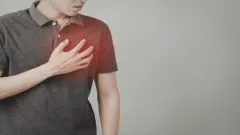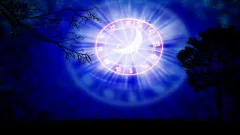Imagine living in a highly developed society where people can create worlds and manipulate time. When humanity progresses to Type 7 civilization, it will be so unfathomable that it will exceed the extended Kardashev scale and pose unfathomable difficulties. Humans in a Type Seven society would be able to alter time in any manner they choose, as well as create and destroy worlds.
Future technology may enable people to change into anything they want, including giants resembling gods, extraterrestrial beings, or even spheres of energy. Beyond human comprehension, a Type 7 society would be able to create, modify, and destroy countless worlds, giving it ultimate dominion over the omniverse.
What is a type 7 civilization?

Image Source: Twitter
Named after the Soviet astronomer Nikolai Kardashev, who initially proposed in 1964, the Kardashev Scale was created by him. Based on the amount of energy that a civilization can manage and use, it is a way to gauge how sophisticated that society is or may become.
- Type I: Utilizes all of the energy present on its native planet.
- Type II: Makes use of the star's whole energy output.
- Type III: Utilizes a galaxy's worth of energy.
- Type IV: Universally mastered energy.
- Type V: Manages energy in several universes.
- Type VI: Controls energy in every timeline conceivable inside a single world.
- Type VII: Modifies the multiverse's structure.
At first, Kardashev thought of it in terms of three levels: Type One would use all the energy from its planet, Type Two would use all the energy from its home star, and Type Three would use all the energy from its home galaxy. Different estimates have been proposed regarding humanity's present position on the scale, but the most widely used estimate places us at roughly 0.7.
Therefore, before exploring the solar system, the Milky Way, and beyond, we still need to manage all of the energy from Earth.
Since then, however, the scale has seen the addition of several levels, most notably Type Four (a civilization that utilizes all of the universe's energy) and Type Five (where all of the multiverse's energy is present). This is where most typical models stop (many of them don't even get beyond Type Four universal power).
How would Type Seven differ from Type Six?
It is theorized to make two primary, significant advancements. First, we're working with what's commonly referred to as the omniverse. The omniverse is everything. It is everything. It's limitless as well. The omniverse encompasses any structure, notion, idea, dimension, and civilization Type that you may imagine, as well as any civilization Type that comes later. It is superior, unequalled, and unrivalled. The impressively simple multiverse in which Type Six exists is in stark contrast to the universal being that gathers even the contents of their superior minds and distils them into a single, comprehensive data point that is Type Seven existence.
However, because of the endless, all-powerful stance we have now adopted, a contradiction is at play. The energy consumption standards we used to evaluate every level before this are now, well, null and void. At this point, the topic of energy potential is well behind us. These days, knowledge and comprehension are everything and Type Seven possesses both of these in plenty. This means that a Type Seven builds itself because there is nothing else like it. It is a dynamic, unchanging thing. Nothing else in the hierarchy is capable of ruling it. The idea that a Type Seven society wouldn't be a civilization at all provides the framework for the second significant improvement.
Uniqueness of Type Seven
A Type Seven would, most likely, need to be unique rather than an all-powerful collective. A Seven would find even a Type Six society's network of creatures united by a hive mind, which includes global language and mental transference, to be excessively inefficient. Too many chances would exist for something to be flawed. At this point, excellence is the key to success.
Where Does Humanity Come into the Picture?

Image Source: Twitter
We would be infinitesimally little on the figuratively endless expanse of a Level Seven perspective, all right. One species, inside one view of reality, on one planet, in one galaxy, in one universe, on one arm of the multiverse. The layers are endless. If there is such a thing as Type Seven, it most likely pays very little attention to us. However, it is aware of our existence, of course. because it is always aware of everything.
Evolution to Type Seven?
Lastly, might humans possibly evolve into something like this? What if we made it to the summit of this ludicrously speculative tree that Kardashev planted back in the 1960s? Well, this kind of ascent would validate several astounding theories. First of all, it would unquestionably prove that we are the most evolved species in history. Furthermore, we would not have given the Kardashev Scale any thought at all, having long since realized that it is but a little, antiquated part of our inexorable trek toward complete, all-consuming power.
However, if all of that seems a bit too weird... If everything seems a little too unbelievable, perhaps that's because it most likely is. It's possible that no civilization, human or another, could ever expect to reach the ethereal Type Seven, even if it did exist. The fact that we exist outside of it suffices as evidence that we will never be able to fully embody it.
We've come a long way from our modest origins, all in the cause of advancement. Although the trajectory of humankind's future remains uncertain, reaching the summit of the Kardashev Scale might drastically alter it. And if mankind evolved into a Type Seven society, that is what would occur.
Why Should Humans Fear This Civilization?
Our collective awareness is aroused by a complicated mixture of curiosity and horror when we consider the possibility of a Type 7 Civilization. Despite having strong roots in science fiction and speculative ideas, this concept promotes careful consideration. Its sheer existence challenges our conception of the universe and compels us to reevaluate the implications of our technological goals. This intriguing idea makes us experience a variety of emotions, from dread to curiosity and pushes us to investigate the limits of our knowledge while being aware of the potential repercussions of our quest for a more profound understanding and mastery over the cosmos.
Also Read: 5 lesser known Lord Ram temples you can visit in 2024























